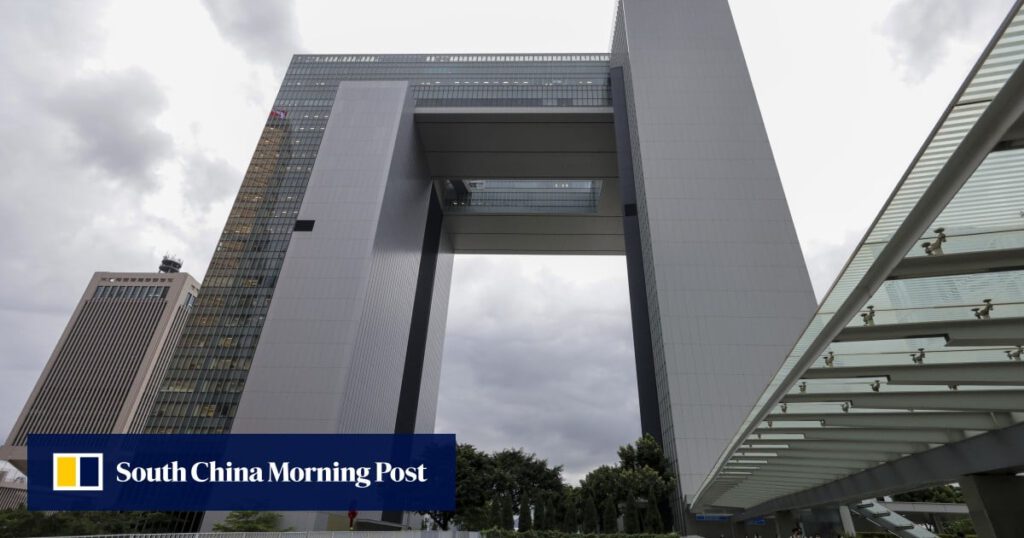He added that his office is planning cybersecurity training for government networks later this year.
Tony Wong is the director of the new Digital Policy Office. Photo: Yik Yong Man
Wong said the exercise would see a “red team” simulate a series of attacks on various government agencies, while a “blue team” would act as network defenders.
A botched software update by U.S. tech company CrowdStrike crashed Microsoft computer systems around the world last week, cancelling flights, disrupting television broadcasts and causing disruption to banks, hospitals and retail stores.
The Digital Policy Office was created Thursday through the merger of the Office of the Government Chief Information Officer and the Office of Efficiency.
The government said the new regime, announced in last year’s Policy Address, would accelerate data governance and the development of digital infrastructure.
Wong estimated that the city’s policy bureaus and departments have at least 3,000 computer systems, which are updated more than 200 times each year, and face a constantly evolving threat of cyber attacks.
Last year, a series of major public and private organisations faced major cyber attacks after hackers leaked personal information and demanded huge sums of money.
The fire department reported in May that the personal information of more than 5,000 members of the public and employees may have been exposed after an outside contractor changed data access rights without authorization.
The Consumer Council was hacked in September last year, with attackers demanding a $500,000 ransom after breaking into 93 systems and compromising 11 servers and workstations.
Cyberport, a high-tech business park, was also the victim of an attack in August last year, with more than 400GB of confidential employee information being put up for sale on the dark web.
The Digital Policy team is made up of three divisions focusing on digital government, data governance and digital infrastructure.
They formulate policies and encourage departments to apply information technology and introduce innovative public services.
The Data Governance department also promotes the sharing of digitized information and the use of data analytics and applications.
02:15
Microsoft’s global system outage disrupts operations at airports around the world
Microsoft’s global system outage disrupts operations at airports around the world
The new office will also strengthen cooperation with mainland China, including developing ways to enhance digital infrastructure and security, promote industrial development, and improve cross-border information exchange and services.
Wong also revealed plans to install “mini programs” on the government’s “iAM Smart” mobile app to allow citizens to access various government services through one platform.
Wong said sometimes people have to go through multiple departments to register a single licence.
“Our government is structured around different departments, but people may want whole-of-government services,” Wong added.
Senator Johnnie Ng Kit Cheong said it was important to regularly maintain back-up systems, and governments and businesses could consider using a different brand from the primary system to minimise the impact of cyber incidents.
But he noted that using a different system could pose technical challenges and huge costs.
Fellow MP Duncan Chew called on both the public and private sectors to develop multiple contingency plans, including manual options, and conduct drills to build capacity to deal with technical breakdowns.
Francis Fong Po-kiew, honorary chairman of the Hong Kong Information Technology Federation, said data centres should be set up in different districts to ensure public services are not disrupted if a power outage occurs in one area.
Sun Dong, minister of innovation, technology and industry, previously said digitalisation was good for socio-economic development.
He added that digital technologies and data are also important in driving high-quality development and production.

